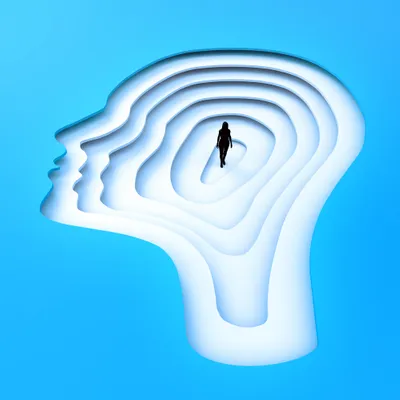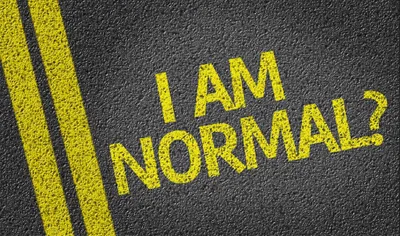Current day society often doesn’t see the forest for the trees when it comes to deciphering mental health myths from real facts.
In fact, the stigmas that surround mental illness hinder our understanding about many of the mental disorders that are prevalent today—such as depression, anxiety and mood disorders, bipolar disorder, and more. Let’s examine, and hopefully dispel, these eight common misnomers concerning mental illness…
1. Mental Illnesses Are Genetic
It’s easy to paint all mental health disorders with the same brush, but the idea that mental health problems are predisposed biologically or genetically is a large mistruth, according to Dr. David Goldbloom, Senior Medical Adviser at Toronto’s Centre for Addiction and Mental Health. When you think about the variation of mental health issues—mood disorders, personality-affected disorders, sexual disorders, anxiety disorders, impulse control issues—you can suddenly understand how all issues can’t possibly originate from one genetic source. Each disorder has its own characteristics and underlying causes (or a combination of causes, like mental trauma, physical illness, abuse, a brain injury, chemical imbalance, and yes, even a family history of mental health can play into this equation. “[Claiming] mental illnesses are all the same is just like saying that all cancers are the same,” says Dr. Goldbloom who astutely points out that the causes, symptoms, features, and treatments for these diseases all vastly differ.
2. Being Mentally Ill and Mental Disabled Is the Same
While a mental disability is characterized by an impaired (or below average) intellectual and oftentimes social function—patients with mental illness can suffer from impaired thought processes, physical and emotional function, as well as the ability to relate to environments and others. And while some mental illnesses may impair memory, lowered intellect has nothing to do with it. In fact, mental health professors at Dalhousie University in Halifax maintain that the majority of those suffering with mental disorders are creative, working, and productive members of society.
3. Mental Health Disorders Are Rare
Do you consider a group of disorders that affect 1 in 20 Americans rare? The rate of mental health issues that strike in one lifetime is quite high, according to the National Institute of Mental Health statistics, who point to 2011 numbers that show:
- Suicide is responsible for roughly 38,000 American deaths per year
- One in 5 US adults suffered from a mental health issue
- One in 10 youths experienced a major form of depression
4. Mentally Ill People Are Crazy
It’s very unfortunate when people sit back and judge society in blacks and whites—or put people in two categories, “normal” and “crazy.” However, due to the fact that mental illnesses tend to be invisible ailments, society often approaches them with fear, misconception, and desire to label what they don’t understand. As with any medical condition (i.e., lung or cardiovascular disease), mental illnesses can be caused by a complexity of reasons—such as imbalanced neurotransmitters (or chemicals) in the brain or disrupted brain pathways that impede mental messages and cause disturbances. This is why mental illnesses should be considered just as real and valid as any other medical condition, says Dr. Patrick White, Professor and Chair of Psychiatry at Edmonton’s University of Alberta.
5. I Can’t Do Anything To Help Mental Health Patients
Sure you can, like any other medical issue (i.e., cancer or a physical injury) those suffering from a mental health issue need our support, especially considering less than 40-percent of adults with a diagnosable mental health issue seek out and receive treatment. Why is the number so low? Perhaps the stigma attached to mental health makes the majority of sufferers ashamed to ask for help. This is why the support and understanding of family and friends is a good first step to seeking help and treatment services.
6. Mental Illnesses Patients Are Dangerous
Not true, in fact, reports from CAMH indicate that only 5-percent of violent acts are perpetrated by individuals with mental health disorders. However, those suffering from a mental health disorder are 10 times more likely to become the victim of violent crime. The reality is the majority of individuals with mental illness are active members of society with no violence tendencies whatsoever. Also, it should be noted that in cases where violence does occur, the individual with mental illness is most often using alcohol, drugs, or placed in a severely threatened state.
7. Mental Health Issues Never Improve
No so, in fact, most mental illnesses (i.e., anxiety or depression) come on due to a traumatic event (i.e., death of a loved one, abuse, injury), which can be treated in the short term with medication as well as other therapies. Medication for most mental disorders is not meant to be taken over the long term as it can cause withdrawal symptoms that are more severe than the metal issue itself. This is why as researchers discover and improve treatments, the condition can be treated over the short term and then monitored by a physician throughout a patient’s life using social and physical lifestyle changes to help keep the condition under control.
8. Depression Isn’t a Real Mental Health Issue
The idea that someone suffering from depression can just decide not to be depressed anymore is ridiculous. Mental illness can’t be turned on or off like a switch. Depression is a type of neurological disorder that can develop during childhood. Current numbers from the U.S. Center for Mental Health Service claim that one in roughly 33 children and one in 8 teens will develop depression. Overall, 50-percent of mental health patients begin displaying the first symptoms prior to age 14.











